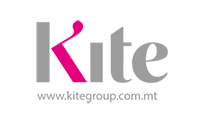LOCAL NEWS
Update by Ministry of Health
The Health Department said that only one, sporadic case was identified in the past 24 hours, a sigh of relief for the authorities and the general population after the non- marginal increases of the past few days. 860 swab tests were carried out, meaning that 85,824 tests have been completed.
The country has seen a total of 663 people infected with the novel coronavirus, 44 cases remaining active.
#MALTA-24: LOCAL NEWS
Timesofmalta.com
Individual consumption in Malta below EU average
Actual individual consumption (AIC) in Malta was 20 per cent below the EU average in 2019, Eurostat has reported.
The statistical arm of the European Union said that AIC per capita expressed in purchasing power standards varied from 59% to 135% of the European Union average across the 27 member states.
Nine states recorded AIC per capita above the EU average in 2019.
The highest level in the EU was recorded in Luxembourg, 35% above the EU average. Germany was around 23% above, followed by Austria, Denmark, Belgium, the Netherlands, Finland, Sweden and France, which all recorded levels between 5% and 20% above the EU average.
AIC per capita for 12 states lay between the EU average and 25% below.
In Italy, Ireland, Cyprus, Spain and Lithuania the levels were 10% or less below the EU average, while Portugal, Czechia, Slovenia and Malta were between 10% and 20% below. Poland, Romania and Greece were between 20% and 25% below the EU average.
Independent
Malta to join Covid-19 Vaccine Alliance amid concerns it overshadows EC vaccine strategy
Malta will be joining the ‘Inclusive Vaccine Alliance’ which seeks to negotiate the price and availability for a Covid-19 vaccine, amidst concerns that this alliance may differ from the European Commission’s vaccine strategy as announced yesterday.
Speaking to Politico, Health Minister Chris Fearne confirmed that Malta would be joining the alliance, which was set up by Germany, France, the Netherlands, and Italy.
“I think any initiative which brings vaccines across the member states … brings value,” he said. This initiative will negotiate the prices of coronavirus vaccines so that, once approved, they can be made affordable to all Europeans, with a priority for those manufactured in Europe.
Fearne was the first to comment on the need for the EU to jointly procure a vaccine, and Malta set up the Valletta Initiative, a grouping of 10 mostly southern and southeastern countries which will try to negotiate drug prices collectively. Fearne welcomed the alliance and said it seems to have already “brought progress.”
However, the announcement of a €2.7 billion European Commission strategy to buy vaccines in advance on Wednesday has raised questions over how the two strategies will interact with each other.
Maltatoday
Charmaine Gauci’s COVID-19 updates led to TV audience spike, study shows
Public Health Superintendent Charmaine Gauci’s daily broadcasts attracted TV viewership with audience numbers more than doubling when compared to November, a Broadcasting Authority survey shows.
Gauci was on TV everyday at 12:30pm to give a daily update on the coronavirus situation in Malta. In that timeslot, approximately 40,000 people tuned in on TV, up from 17,400 in November 2019.
Television audiences during March increased by 18.2% over the previous assessment in November, the BA said.
With 73.2% of the population watching television, it was the highest registered audience numbers since the assessment was carried out. This represents an increase of 9.8% over March 2019.
Newspaper Review
Business Today quotes MEP Alfred Sant who urged the Maltese private sector lobby to alert politicians when EU developments impact their interests. Trucking and logistics companies in Malta said new cabotage rules adopted by Brussels will put them at a disadvantage.
The Malta Business Weekly quotes the Prime Minister who said that PL deputy Leader Chris Cardona has stepped down. Robert Abela told journalists that the former Economy Minister had handed in his letter of resignation to the party.
The Independent says that the Labour Party will hold a general conference in the second week of July to appoint a new deputy leader for party affairs. The announcement was made by Prime Minister Robert Abela.
The Times quotes a study by the EU agency for fundamental human rights which found that a third of people in Malta are prepared to accept facial recognition by companies in exchange for services. Only six percent of people in the EU are willing to do the same.
In-Nazzjon follows the compilation of evidence against Yorgen Fenech on Wednesday where state witness Melvin Theuma claimed that the businessman felt secure in pursuing the plan to murder Daphne Caruana Galizia following the Labour Party victory at the 2017 elections.
L-Orizzont follows the announcement by Apostolic Nuncio Alessandro D’Errico who named monsignor Anton Teuma as the new bishop for Gozo. Teuma will be ordained within the next two to three months.
The Times reports on the nomination of Anton Teuma as bishop of Gozo who received a cross from his predecessor Mario Grech. The 56-year-old served in the Xagħra parish and is a licensed welder and electrician.
The Independent quotes newly named Gozo bishop Anton Teuma who urged the diocese to work ‘collectively’. Teuma thanked his precursors Mario Grech and Nikol Cauchi, who he said was an important influence on his formation.
L-Orizzont speaks to the president of the teachers’ union, Marco Bonnici, who said that his position is not being challenged in the upcoming elections by members. Bonnici said he will repay the sign of trust with greater determination.
The Malta Business Weekly says that HSBC will go ahead with a plan to cut 35,000 jobs worldwide. A spokesperson for the bank confirmed that a memo by Chief Executive Noel Quinn put external hiring on hold.
Business Today says that DB Group CEO Arthur Gauci is contesting claims made by NGOs in their objections to the City Centre development on the former ITS site. Gauci denies that demolition of barracks has started without regulatory supervision.
In-Nazzjon carries a statement by the Nationalist Party which denied claims made in court that it received offers to undermine the election campaign of any of its MEP candidates in last year’s contest.
The Malta Business Weekly reports that De La Rue is set to close its banknote and passport printing operations in Gateshead, UK, following financial challenges. The British company is seeking to raise £100 million in new equity.
Editorials
The Times’ Editorial looks at the devastating impact that Covid-19 had on the tourism industry. However it urges policymakers to make the best use of the opportunity to refocus the objectives of our country in this sense. Rather than focus solely on the numbers, authorities should aim at improving environmentally friendly mobility and consumption and long-term economic investment.
Upgrading our tourism product means rolling out the red carpet for visitors who choose Malta as their holiday destination. Policymakers should not miss this precious window of opportunity to rethink and reinvent the visitors’ economy. We must not be driven by nostalgia but by a vision of an industry that adds value to the whole community, argues the Editor.
The Independent tackles the thorny issue of enforcement of anti-money laundering in Malta, noting that while some improvements have taken place, it seems that the police are still lagging behind on financial crime. Data tabled in Parliament recently showed that, in 2019, only 11 people were charged with money laundering crimes. There is, however, no data on the actual number of people who were successfully prosecuted.
Business Today takes a cautious approach to the resumption of economic activity, saying that it remains of paramount importance that the health authorities continue with their assiduous virus testing and contact tracing of new cases. While it becomes impractical to enforce social distancing in parties and gatherings, emphasis should still be placed on proper personal hygiene and the wearing of masks whenever possible.
The Editor argues that Malta, like the rest of the world, is not yet out of the woods from a health aspect and continued vigilance remains a priority. The return to partial lockdowns in Beijing comes as an ominous warning.
L-Orizzont argues that Maltese representatives abroad should always take the line of the country and should unite together to promote its interests. It criticises Opposition MEPs for what it describes as ‘not helping to raise the image of our country’ in the European Parliament.
In-Nazzjon also looks at the tourism sector but highlight a number of political scandals, insisting that even such an important sector has been tainted, referring in particular to recent revelations related to sponsorships by the Malta Tourism Authority.
INTERNATIONAL NEWS
China willing to give priority to African countries once COVID-19 vaccines are ready
China will exempt some African countries from repaying zero-interest rate loans due at the end of 2020, state television reported on Wednesday, quoting President Xi Jingping’s speech at a summit.
Under the framework of the China-Africa cooperation forum, China will further extend loan payment forbearance for some countries including African countries, Xi told the China-Africa summit.
China is willing to give priority to African countries once COVID-19 vaccines are ready to use, Xi added.
EU Corner – by Comuniq.EU
Competing vaccine strategies and alliances create concern in Europe
As a growing number of pharmaceutical companies worldwide announce important breakthrough in the development of vaccines against the coronavirus, the global race for procuring these vaccines is now heating up.
In Europe, the Commission, is seeking to learn the lessons of the initial response to the virus, when a lack of a coordinated approach meant that countries ended up fighting each other for personal protective equipment for healthcare professionals. In this context, Brussels has announced a strategy to purchase vaccines in advance, through a new mechanism called the Emergency Support Instrument (ESI), which allows it to purchase on behalf of EU member countries, bypassing the red tape that’s held up joint procurements.
Yet despite this effort, four major European nations, Germany, France, the Netherlands and Italy set up the so-called Inclusive Vaccine Alliance.
This initiative will negotiate the prices of coronavirus vaccines so that, once approved, they can be made affordable to all Europeans, with a priority for those manufactured in Europe. Up to €2.7 billion were allocated to start spending on vaccines that are still under development and have yet to be approved.
Other countries have criticised this imitative, with Belgian Health Minister Maggie De Block arguing that “By doing this you are weakening everyone: both the Commission’s overall initiative and your own position”.
At an EU health ministers meeting held last Friday, countries gave the Commission the backing to buy coronavirus vaccines on their behalf. Yet, the next day the vaccine alliance announced a deal for between 300 and 400 million doses of a vaccine developed by Anglo-Swedish pharma company AstraZeneca and the University of Oxford. Other countries have expressed interest to join this alliance. Political website Politico.com said that Malta’s Health Minister Chris Fearne confirmed that the country will be joining the alliance.
This daily update bulletin is being compiled for the Chamber of Advocates by CI Consulta from Corporate ID Group. CI Consulta delivers policy research and analysis, evaluations and impact assessments up to policy implementation and integration.










